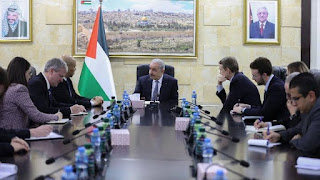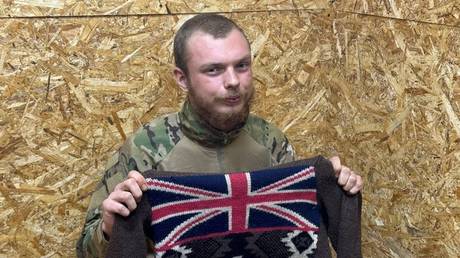ARTICLE AD BOX
Prime Minister of the Palestinian caretaker government, Muhammad Shtayyeh, confirmed that the United States’ use of its veto in the Security Council against draft resolutions calling for a ceasefire in the Gaza Strip encourages the Israeli occupation to shed more blood under international cover.
The head of the Palestinian caretaker government, Muhammad Shtayyeh, warned that the United States' use of its veto power several times to prevent a resolution supporting the Gaza ceasefire in the Security Council, encourages Israel to shed more blood under international cover.
This came while Shtayyeh received a delegation of members of the US Congress, including Senator Cory Booker and Senator Michael Panten, in the city of Ramallah in the central occupied West Bank.
According to a statement by the Palestinian government, Shtayyeh briefed the American delegation on Israeli measures in the West Bank, “which also suffers from Israeli aggression and settler terrorism.”
He stressed that reviving the authority means enabling it to carry out its role and "strengthening the steadfastness of our people."
Washington has been promoting the idea of a “renewed and revitalized Palestinian Authority” for some time, while the Israeli occupation refuses to allow the Authority to assume any role in Gaza after the war.
Shtayyeh renewed his call on the United States to support an immediate ceasefire, work to open the crossings to bring relief aid into Gaza, and provide basic services in a manner that responds to the humanitarian crisis.
An international cover for the bloodshed
He warned that the United States' use of its veto power several times to prevent a resolution supporting the Gaza ceasefire in the Security Council would encourage Israel to shed more blood under international cover.
The head of the Palestinian caretaker government stressed that the Gaza Strip is facing an unprecedented humanitarian catastrophe due to the Israeli aggression, and needs a Marshall Plan that includes relief, reconstruction, and economic recovery as soon as the aggression stops.
Shtayyeh urged Washington not to use its veto against the (repeated) Palestinian request for full membership in the United Nations.
He also called on the United States to "bilaterally recognize Palestine as a state, and for recognition to be the beginning of a political solution and not the result of an uncertain political process because there is no partner in Israel."
He also called on the United States to refund the United Nations Relief and Works Agency for Palestine Refugees (UNRWA), which contributes to relief for hundreds of thousands of Palestinians at a time when Israel is practicing "all forms of genocide through killing, starvation and destruction."
In 2012, the United Nations granted Palestine non-member observer state status, after a historic vote in the General Assembly.
Out of 193 member states of the United Nations, 139 countries recognize Palestine as a state, while successive American administrations refuse to recognize a Palestinian state, and condition the matter on the Palestinians and Israelis reaching an agreement regarding the state.
As of January 30, 18 countries and blocs, led by the United States and the European Union, decided to suspend their funding of the United Nations Relief and Works Agency for Palestine Refugees (UNRWA).
Israel claims that 12 of the agency’s employees, out of 13,000 in Gaza, participated in Hamas’ attacks last October 7 against Israeli military bases and settlements, in response to “the occupation’s daily attacks against the Palestinian people and their sanctities, especially Al-Aqsa Mosque,” according to the report. For movement.
The war on Gaza left more than 30,000 dead, most of them children and women, and an unprecedented humanitarian catastrophe and massive destruction of infrastructure and property, which required Israel to appear, for the first time since its establishment in 1948, before the International Court of Justice on charges of committing “genocide” crimes.
.png)
 8 months ago
6
8 months ago
6









 English (US)
English (US)